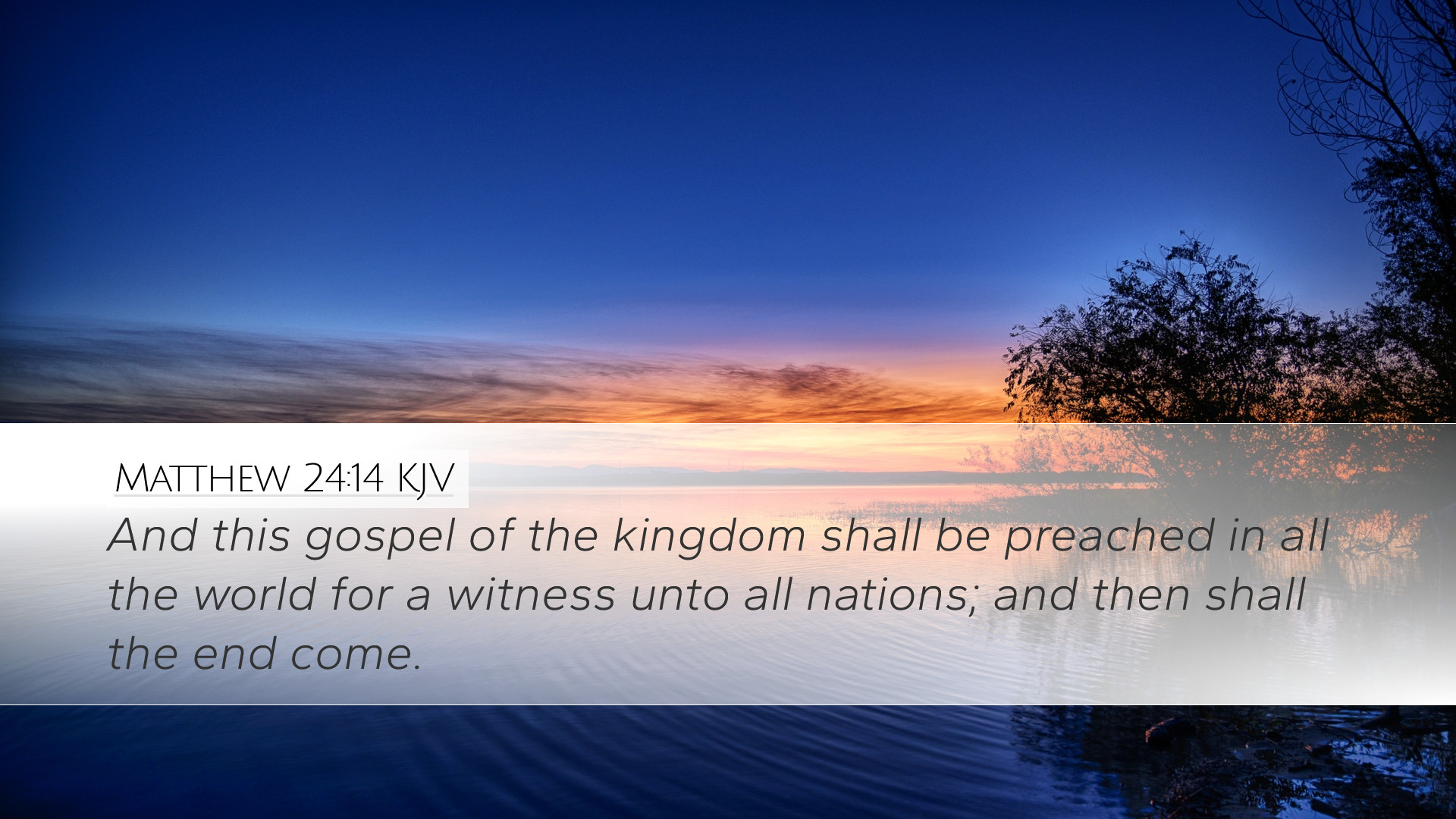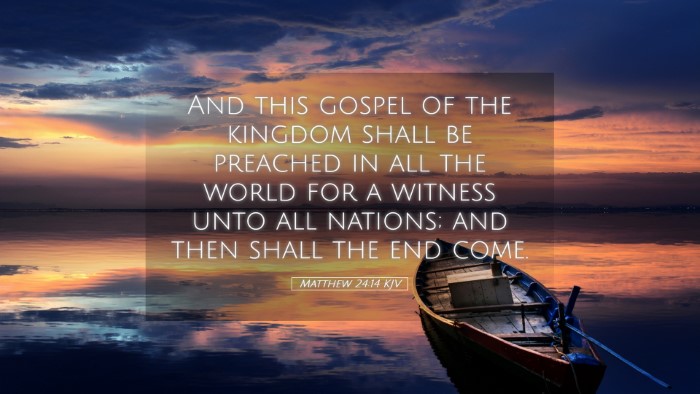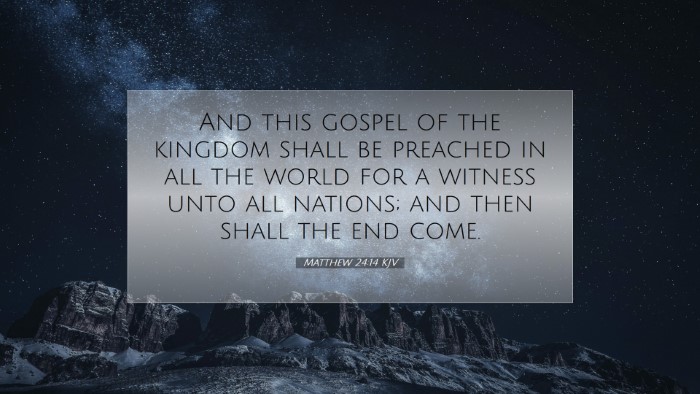Commentary on Matthew 24:14
Verse Text: "And this gospel of the kingdom shall be preached in all the world for a witness unto all nations; and then shall the end come."
Introduction
The verse from Matthew 24:14 serves as a pivotal declaration within the Olivet Discourse, where Jesus speaks of the signs of the end times and the ultimate culmination of His Kingdom. In this commentary, we will explore various insights from public domain commentaries, emphasizing the theological implications and practical applications for pastors, students, theologians, and Bible scholars.
Insights from Matthew Henry
Gospel's Scope: Matthew Henry emphasizes that the commission to preach the Gospel transcends geographic and cultural barriers. The phrase "all the world" highlights the universal nature of the Gospel, asserting that it is meant for every nation and people.
Witness to All Nations: Henry interprets the preaching of the Gospel as a necessary witness. It suggests that the message of Christ is not merely for the elect but is intended as a testimony that confronts every individual and every nation with the truth of God. Thus, this evangelistic effort is essential for the conviction of hearts.
End Times Connection: The concluding part of the verse, "and then shall the end come," indicates a conditional relationship. Henry notes that the fulfillment of this mission is closely tied to the eschatological timeline, suggesting that the completion of the witness bears direct significance for the return of Christ.
Insights from Albert Barnes
Definition of Gospel: Albert Barnes provides a thorough definition of the "gospel of the kingdom." He elucidates that it refers not only to the good news of salvation through Christ but also to the establishment and reign of God's sovereignty. This reflects the comprehensive nature of God's redemptive work.
Missionary Mandate: In his exposition, Barnes highlights the missionary aspect of the Gospel. He interprets this verse as a mandate for Christians to engage in worldwide evangelism. He asserts that it warns against complacency, pushing the church to actively fulfill its role in spreading the Gospel.
Timing of the End: Barnes discusses the eschatological implications, suggesting that the 'end' referenced entails not just the final judgment but also the culmination of human history where the acknowledgment of Christ as King is realized. The "preaching in all nations" sets the stage for this divine climax.
Insights from Adam Clarke
Authority of the Message: Adam Clarke elaborates on the authority of the Gospel being preached. He notes that the message carries the weight of divine command, ordained to be communicated to every corner of the earth. Clarke underlines that the Gospel is not merely a piece of information; it is a profound declaration from God that demands response.
Universality and Urgency: In Clarke's perspective, the universality of the Gospel signifies an urgent call. The notion that it must be preached among all nations conveys a sense of haste that should permeate the hearts of believers and churches. He argues that this urgency is paramount in understanding the mission of the church.
Consequence of Preaching: Clarke also emphasizes the connection made by Jesus between the preaching of the Gospel and the end. He notes that the declaration of the Gospel serves as a precursor to the divine culmination, signifying God’s readiness to bring His plan to fulfillment once the Gospel is accepted and preached widely.
Theological Significance
This verse, when analyzed in light of the commentaries, reveals profound theological truths regarding the nature of God's Kingdom, the Gospel's mission, and the eschatological hope inherent in the Christian faith. The act of preaching the Gospel encapsulates the core of evangelism while serving as a divine promise of Christ's return.
Practical Applications
- For Pastors: Cultivate a zealous commitment to global missions and equip the church for evangelistic endeavors.
- For Students: Engage deeply with the Great Commission, understanding your role as a messenger of the Gospel in diverse contexts.
- For Theologians: Explore the implications of this verse within the broader narrative of redemptive history and eschatology.
- For Bible Scholars: Investigate the historical and cultural contexts that influence the Global Gospel Message and its reception among various nations.
Conclusion
Matthew 24:14 serves as a clarion call to the Christian community, emphasizing the integral role of the Gospel in God's ultimate plan. Drawing insights from respected commentaries helps to deepen our understanding while compelling us toward action. As believers, we are entrusted with the profound responsibility to spread the message of the Kingdom, heralding the imminent return of our Lord.


